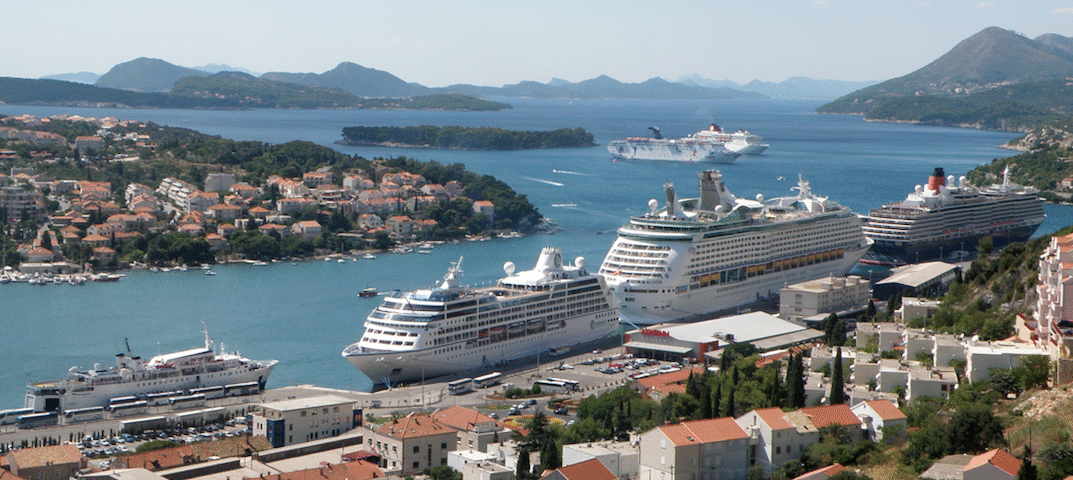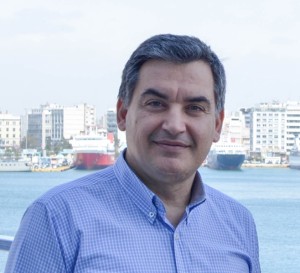The launching of the World Ports Sustainability Programme (WPSP) by the International Association of Ports and Harbours (IAPH), the American Association of Port Authorities (AAPA), the European Sea Ports Organisation (ESPO), AIVP – The Worldwide Network of Port Cities (AIVP) and the World Association for Waterborne Transport Infrastructure (PIANC) in March is a major step towards a responsible growth of the port industry. It is a most welcomed initiative by all of us serving ports and the maritime world.
WPSP aims to demonstrate global leadership of ports in contributing to the Sustainable Development Goals of the United Nations. This initiative wants to empower port community actors worldwide to engage with business, governmental and societal stakeholders in creating sustainable added value for the local communities and wider regions in which their ports are embedded.
It is not surprising that nearly 1,000 ports and port-related companies committed themselves in Antwerp to achieving the 17 Sustainable Development Goals (SDGs) set by the United Nations.
All those loving the industry are pleased that an idea advanced by IAPH (note: congratulations to a fellow PortEconomics member, Patrick Verhoeven for his leading role in making this happen) developed to a concrete initiative. The port Community has appreciated the initiative and works full steam ahead to make it happening.
The missing piece: cruise ports associations
What seems surprising though, is the slow reaction of the cruise port community: specialised associations representing it were absent from the signatories’ list.
When societal pressures are mounting this presence would be more important than ever. Cleaner fuel consumption, reduced emissions, aesthetics of large ships, balanced deployment of cruise vessels, better waste reception treatment, the avoidance of overcrowding, environmentally sustainable chains, and nature and wildlife conservation, are few of the relevant issues that challenge cruise port.
The cruise port community needs more than anybody else to develop synergies to solve collective active problems in and outside the port area.
It was for precisely these reasons, that cruise and ferry ports throughout Europe have been fully committed to serve the UN 2030 Agenda for Sustainable Development and the 17 UN Sustainable Development Goals.
In recent times this was demonstrated at various other fronts as well, whether this translates to being instrumental at the European Sustainable Shipping Forum, or to specialised cruise and ferry ports Associations working within the ESPO Cruise and Ferry Ports Network to develop collaborative initiatives that combine the growth of cruise activities with social responsibility and environmental friendly strategy.
Thus, one would expect them to be vocal in favour of the WPSP cause. Ufortunately, silence has prevailed this time.
Upscale of efforts is urgently needed
The slow reaction should be reversed, and cruise ports to be effectively represented. Cruise ports associations should continue to demonstrate in practice the existing commitment of their memberships to sustainable development in all respects, by subscribing to the aims of the World Ports Sustainability Programme.
Cruise ports associations need to be partners of WPSP, in a move that would commit them to:
- Contribute to the UN Sustainable Development Goals where and when possible within its own field of activity, competence and responsibility through existing as well as new projects and initiatives;
- Encourage their members to sharing best practices as well as relevant information about running and new initiatives as well as publicly available data;
- Provide guidance, support and recognition to their members on the areas covered by the 17 sustainable development goals;
- Engage their organisation to promote the activities of the World Ports Sustainability Program;
- Exchange on regular basis information, to evaluate the implementation of initiatives and commitments and to assess ways to strengthen cooperation.
- Establish and maintain best practices;
- Function as think-tanks and breeding ground for new collaborative projects;
- Report regularly about the sustainability performance of the cruise ports sector.
WPSP offers a unique opportunity not to be missed:
By signing or practically supporting the WPSP Declaration cruise ports and their associations will engage to continuation and further development of existing initiatives towards sustainable and social responsible growth of cruise activities.
Associations representing cruise ports should jockey towards this end, rather than confirming any signs of inertia.













